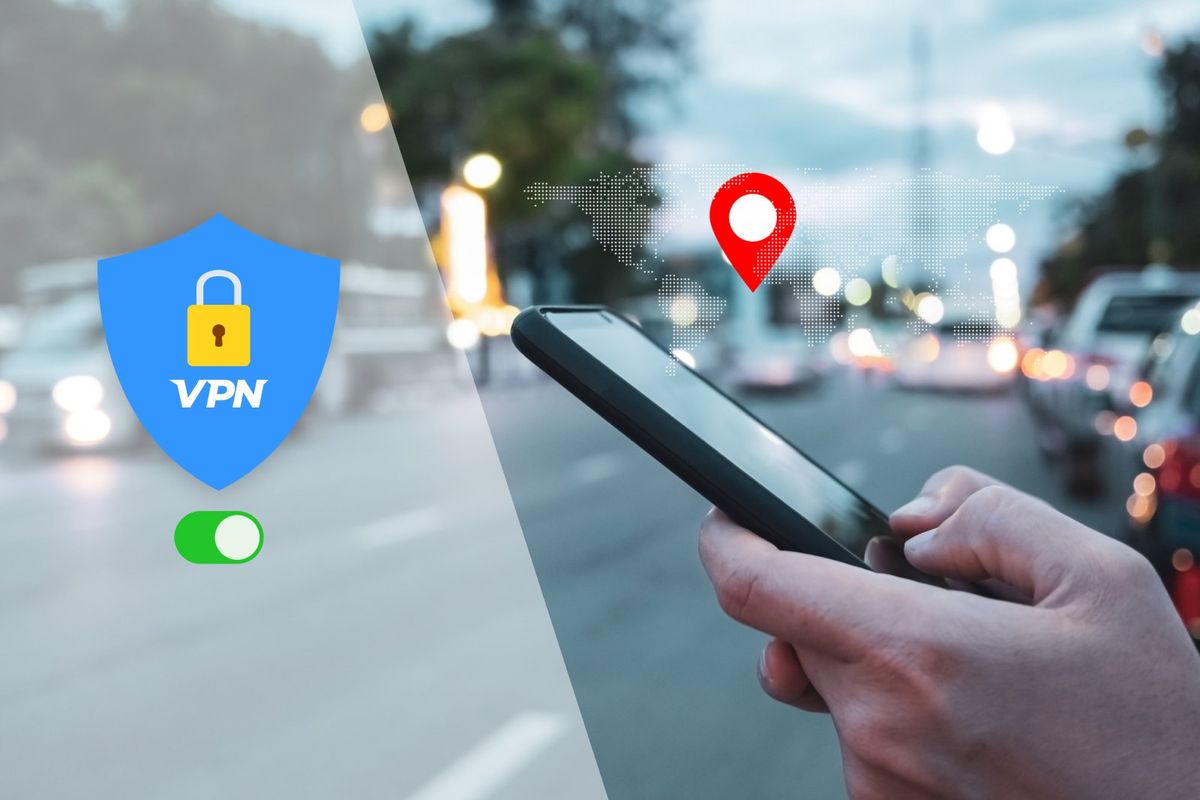Smartphones

IStock
Can iPhone Be Tracked With VPN?
Using a VPN on your iPhone improves privacy—but it doesn’t make you invisible. Learn what VPNs can and can’t hide, and how to tighten your device's privacy settings.

Using a VPN on your iPhone improves privacy—but it doesn’t make you invisible. Learn what VPNs can and can’t hide, and how to tighten your device's privacy settings.
In our fast-paced digital world, privacy is key—especially on smartphones. iPhones offer strong security, but many users still use a VPN for added protection. But does this mean that you have 100% protection, or can your iPhone still be tracked even with a VPN? This article will explain how VPNs work on iPhones and what they can and can't track. Let’s dive in!
A VPN (Virtual Private Network) is your shield in the digital wilderness. It creates an invisible tunnel from your iPhone to the vast internet, which means no snooping eyes—whether from your internet provider or hackers.
Let’s tackle the burning question head-on. The quick answer is:
Yes! Your iPhone can still be tracked in certain ways, even with a VPN. But let’s simmer down and decipher what this actually implies.
While VPNs are powerful privacy tools, they’re not invincible. Sometimes, unexpected behaviors like when your iPhone’s VPN keeps switching on by itself can make users question how much control they really have. So, here are a few things your VPN can't hide:

VPNs camouflage your IP address, but they can’t cloak your GPS location. Your iPhone taps into satellite signals for pinpoint accuracy. Even if you're virtually situated in another country via a VPN, apps can still access your native location through GPS.
Numerous apps gobble up personal data far beyond their basic needs. Even with a VPN, if you’ve granted permissions, they can collect data like:
Device fingerprinting employs a crafty approach, allowing websites and advertisers to shadow you via your device's unique traits. These may include:
Cookies are tiny data morsels stored on your iPhone by websites. They remember your preferences, logins, or shopping lists—but they can also monitor your movements across the internet. Similarly, web beacons (stealthy pixel images) indicate when you open emails or visit specific pages.
Even with your VPN activated, websites can still tag you if cookies linger in your browser.
The DNS (Domain Name System) functions as the Internet's directory. When you type a website, your device queries the DNS server for the corresponding IP address.
A DNS leak occurs when these queries bypass your VPN, revealing your online destinations directly through your ISP. Yes, even while your VPN is on!
Browser autofill features can expose your identity, even when shielded by a VPN. Saved passwords and form entries might slip through like water through a sieve.
VPNs encrypt your internet flow, but they don’t always secure content or metadata from emails or certain messaging apps. This data can reveal:
While platforms like iMessage and WhatsApp boast end-to-end encryption, ordinary email services might still disclose metadata—even with a VPN.
Linking your iPhone to a Wi-Fi network sends your device name and MAC address to the router. This unique identifier allows tracing your device, VPN or not. It’s like giving away your hotel room number while checking in for a digital getaway!
Many apps employ embedded analytics to observe user behavior—how long you linger on a page, the buttons you press, or how frequently you engage with the app. This intelligence is often used to enhance user experiences or spin marketing webs.
If privacy is your guiding star, a VPN is a solid foundation—but it only offers part of the solution. Here’s how you can elevate your privacy game:
Navigate to: Settings > Privacy > Location Services. Turn off any app that doesn’t need to track your location.
Audit access for each app: Settings > Privacy > [Choose category]. Disable microphone, camera, or contact access for apps that don’t truly need it.
Safari has nice privacy features, but browsers like Firefox Focus or Brave provide additional safeguards against trackers and cookies.
Go to: Settings > Privacy & Security > Tracking. Turn the option "Allow Apps to Request to Track” off.
Select a VPN that commits to a strict no-logs policy. Search for VPNs backed by independent audits for a clear conscience.

Apple professes to prioritize your privacy and embeds solid protections within iPhones. Yet, some features still enable a degree of tracking:
Using a VPN won’t fully deter Apple from collecting this data. Protecting your privacy may demand a more detailed examination of your interactions with Apple services.
If safeguarding your privacy ranks high on your priority list, a VPN is a stellar first step—but just one of many. Stay vigilant about what data your iPhone and apps are gathering, and seize control of your settings.
So, can your iPhone be tracked while using a VPN?
Yes, but much less than without one.
Think of a VPN as your privacy umbrella. It won't block every raindrop, but it’ll keep you far drier than standing in the storm without it.
NETGEAR Nighthawk Tri-Band WiFi 7 Router (RS300) - Security Features, BE9300 Wireless Speed (up to 9.3Gbps) - Covers up to 2,500 sq. ft., 100 Devices - 2.5 Gig Internet Port
GearBrain Compatibility Find Engine
A pioneering recommendation platform where you can research,
discover, buy, and learn how to connect and optimize smart devices.
Join our community! Ask and answer questions about smart devices and save yours in My Gear.
